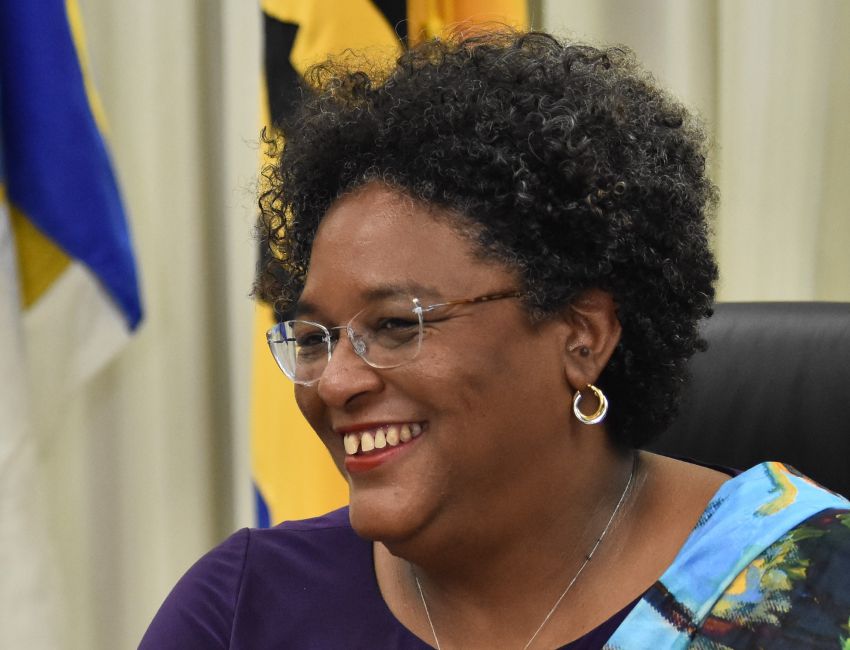Barbados is set to become a Parliamentary Republic in November this year.
The island will have a non-executive president and the new plans are expected to commence on November 30, which will mark the Caribbean nation’s 55th year of independence.
The plans were announced yesterday by Prime Minister, Mia Mottley, as she addressed an event held in Jubilee Gardens, to commemorate the Day of National Significance.
“The time has come to fully leave our colonial past behind”.
Ms Mottley said: “On the November 30th this year, our great nation which we love shall become a Parliamentary Republic.”
The Barbadian Prime Minister told the audience that further amendments will be made “to facilitate that transition to a new president to be sworn in on November 30”.
She added from December 1st, Barbados will start “the journey of the settlement of the new constitution of Barbados which will be the subject of extensive consultation and communication with the people of this nation”.
The Prime Minister said the next four months will see ongoing discussions into the historic plans. The talks will be led by the Republic Transition Advisory Committee.
Ms Mottley said: “Over the course of the next four months, we will start and complete the discussion to settle among ourselves what is that trajectory? What is the spirit with which we want to embrace both the Republic and the new constitution? Who are we? What do we stand for?
“And that conversation will be led by the Republic Transition Advisory Committee along with other members of civil society and the government because there must be a Charter of Barbados that is established and brought to our Parliament before November 30th such that we enter the morning of the November 30th committed to the Charter of Barbados that reflects the essence of who we are and what we stand for.”
She added: “For the avoidance of doubt, the Charter is non- justiciable, not because we don’t like money, but because we are realistic as to what we can and cannot afford as a small, modern, independent nation and not everything is measured in terms of money but everything must be measured in terms of standards and who we are and what we must fight for.”
Barbados will be following in the footsteps of other Caribbean countries which opted for a home-grown head of state. Guyana became a republic in 1970, followed by Trinidad and Tobago in 1976 and Dominica became a republic in 1978.
But in the early 19th century, Haiti became the world’s first Black republic and the first independent Caribbean nation after overthrowing French colonial control and fighting long and hard for freedom from slavery. Haiti’s independence is said to have influenced many subsequent rebellions by those enslaved across the Caribbean.
In 2020, Prime Minister Mia Mottley said Barbadians wanted a Barbadian head of state and said “the time has come to fully leave our colonial past behind”.
The recent announcement from Barbados, has seen social media users in other Caribbean islands urging their governments to do the same.
The Queen is currently the head of state in several Caribbean islands, including, Antigua, The Bahamas, Grenada, Jamaica, St. Kitts and Nevis, St. Lucia and St. Vincent and the Grenadines.
Barbados achieved independence from Britain on November 30, 1966.


Comments Form
3 Comments
Great decision!
Will barbados be better be off. We also needed to have farming a agriculture policy inplace.What do barbados produce we cant depend on tourism only.
Did the Barbadian nation have a referendum for this now or past when the great Errol Barrow spoke of a republic for Barbados or has this been a decision that was made subliminally by the politicians